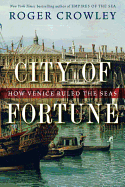 Neil Hegarty. Irish fiction writer Hegarty emphasizes the external political and
cultural forces shaping the destiny of the Emerald Isle and chips away
at the usual myths by presenting a sweeping panorama that includes the
first Christian communities, Columbanuss powerful sermons, the Viking
settlements, the early great documents of the new land, and the long
reach of the Roman Catholic Church into Irish affairs. Without succumbing to a dry academic tone, Hegarty offers a finely
researched and timely celebration of Ireland's turbulent history and
conservative people.--Publisher's Weekly (Check Catalog)
Neil Hegarty. Irish fiction writer Hegarty emphasizes the external political and
cultural forces shaping the destiny of the Emerald Isle and chips away
at the usual myths by presenting a sweeping panorama that includes the
first Christian communities, Columbanuss powerful sermons, the Viking
settlements, the early great documents of the new land, and the long
reach of the Roman Catholic Church into Irish affairs. Without succumbing to a dry academic tone, Hegarty offers a finely
researched and timely celebration of Ireland's turbulent history and
conservative people.--Publisher's Weekly (Check Catalog)
Friday, March 30, 2012
The Story of Ireland: A History of the Irish People
 Neil Hegarty. Irish fiction writer Hegarty emphasizes the external political and
cultural forces shaping the destiny of the Emerald Isle and chips away
at the usual myths by presenting a sweeping panorama that includes the
first Christian communities, Columbanuss powerful sermons, the Viking
settlements, the early great documents of the new land, and the long
reach of the Roman Catholic Church into Irish affairs. Without succumbing to a dry academic tone, Hegarty offers a finely
researched and timely celebration of Ireland's turbulent history and
conservative people.--Publisher's Weekly (Check Catalog)
Neil Hegarty. Irish fiction writer Hegarty emphasizes the external political and
cultural forces shaping the destiny of the Emerald Isle and chips away
at the usual myths by presenting a sweeping panorama that includes the
first Christian communities, Columbanuss powerful sermons, the Viking
settlements, the early great documents of the new land, and the long
reach of the Roman Catholic Church into Irish affairs. Without succumbing to a dry academic tone, Hegarty offers a finely
researched and timely celebration of Ireland's turbulent history and
conservative people.--Publisher's Weekly (Check Catalog)
Friday, March 23, 2012
City of Fortune: How Venice Ruled the Seas
 Roger Crowley. The only seas Venice ruled were the Mediterranean and Black, but it dominated European trade from 1000 to 1500. While mildly neglected compared to Britain and France, Venice receives a stirring account from British historian Crowley. The author concentrates on its golden years and the wars that made them possible, passing over its great but less-pugnacious cultural accomplishments. An action-packed political and military history that will remind readers of the Italian sea power that prevailed for centuries before Western European nations arrived on the scene.--Kirkus (Check Catalog)
Roger Crowley. The only seas Venice ruled were the Mediterranean and Black, but it dominated European trade from 1000 to 1500. While mildly neglected compared to Britain and France, Venice receives a stirring account from British historian Crowley. The author concentrates on its golden years and the wars that made them possible, passing over its great but less-pugnacious cultural accomplishments. An action-packed political and military history that will remind readers of the Italian sea power that prevailed for centuries before Western European nations arrived on the scene.--Kirkus (Check Catalog)
Sunday, March 18, 2012
Vanished Kingdoms: The Rise and Fall of States and Nations
 Norman Davies. Distinguished British historian Davies delves into 15 once-great, now-fallen states, from the ancient
Visigoths to the Soviet Union. The author again displays an enormous
breadth of knowledge in this selective yet comprehensive historical
study of thriving kingdoms that eventually gave way to internal or
external forces such as implosion or conquest. A fine concluding chapter, "How States Die," offers a robust roundup for
the diligent reader. As usual with Davies, an exceedingly accomplished
and dauntingly thorough study.--Kirkus (Check Catalog)
Norman Davies. Distinguished British historian Davies delves into 15 once-great, now-fallen states, from the ancient
Visigoths to the Soviet Union. The author again displays an enormous
breadth of knowledge in this selective yet comprehensive historical
study of thriving kingdoms that eventually gave way to internal or
external forces such as implosion or conquest. A fine concluding chapter, "How States Die," offers a robust roundup for
the diligent reader. As usual with Davies, an exceedingly accomplished
and dauntingly thorough study.--Kirkus (Check Catalog)
Friday, March 9, 2012
Pearl Harbor: FDR Leads the Nation Into War
 The History Channel resident historian Gillon reminds readers that everyone expected war. Having broken
Japan's diplomatic code, American officials knew that morning that
Japan's embassy had been ordered to destroy its code machines. Little useful activity and no important decisions resulted, and
Gillon wisely cuts away from the confusion to deliver background
information and generous biographies of FDR, Eleanor and a dozen leading
figures.
The History Channel resident historian Gillon reminds readers that everyone expected war. Having broken
Japan's diplomatic code, American officials knew that morning that
Japan's embassy had been ordered to destroy its code machines. Little useful activity and no important decisions resulted, and
Gillon wisely cuts away from the confusion to deliver background
information and generous biographies of FDR, Eleanor and a dozen leading
figures.
An excellent introduction to Roosevelt and his times with heavy emphasis on events surrounding Pearl Harbor.--Kirkus (Check Catalog)
Subscribe to:
Comments (Atom)
